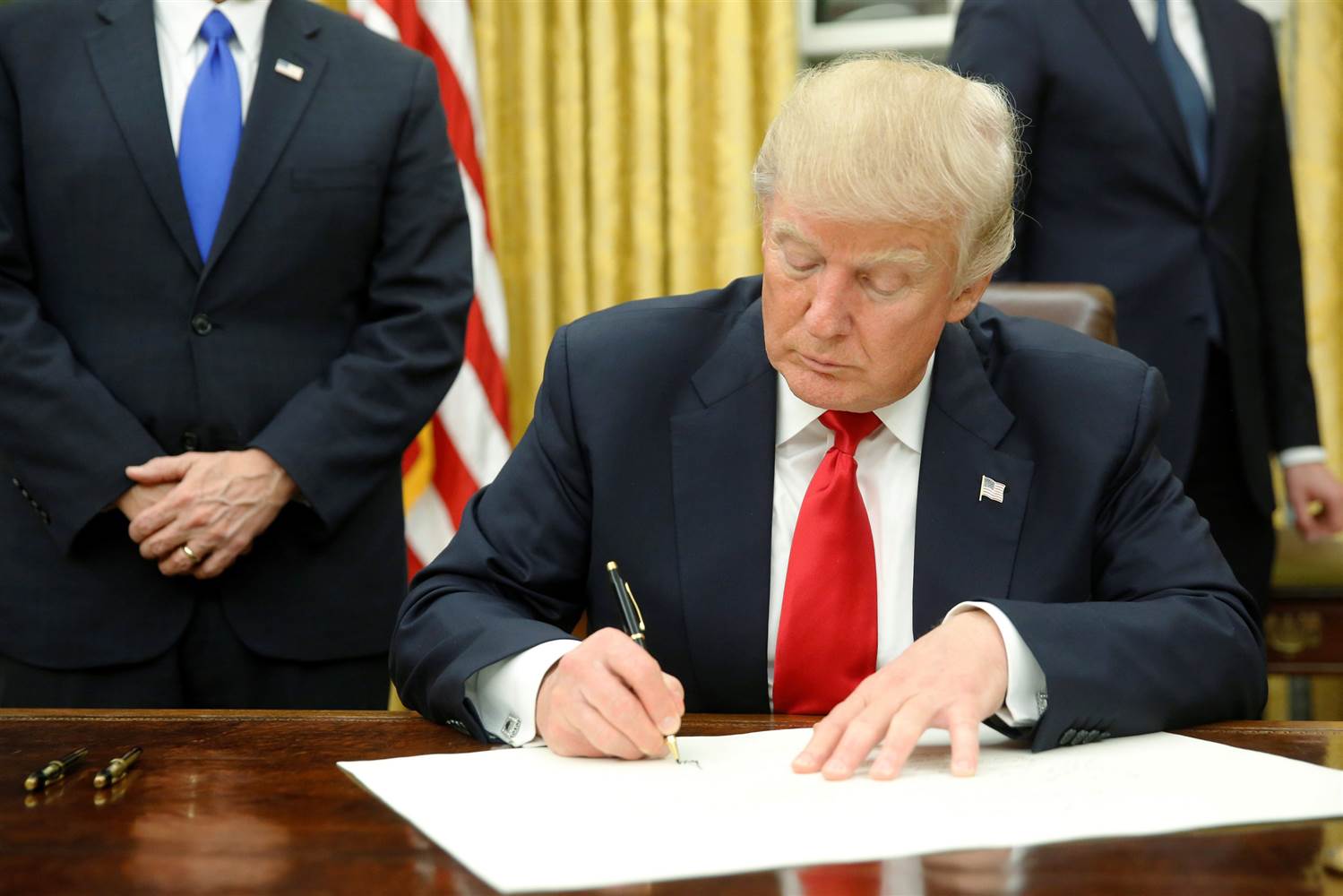President Donald Trump is preparing to issue an executive order dramatically restricting refugee admissions to the U.S. and denying visas to individuals from countries his administration deems high-risk, according to congressional and advocacy organization sources briefed on a draft.
The executive order could still change before Trump signs it, which could happen this week. According to sources, administration officials are considering:
- Blocking refugees from war-torn Syria from entering the U.S. indefinitely.
- Suspending all refugee admissions for 120 days while the administration determines which countries pose the least risk.
- Temporarily suspending visa issuances to people in countries where the administration considers security screening inadequate ― meaning people from those countries couldn’t enter the U.S. at all.
- Capping total refugee admissions for fiscal year 2017 at 50,000 ― less than half of the 110,000 proposed by the Obama administration.
Sources briefed on the draft executive order said the list of countries targeted is not yet finalized, but those under consideration ― Syria, Iraq, Iran, Libya, Somalia, Sudan and Yemen ― are all Muslim-majority nations. Trump vowed last year to suspend immigration from “terror-prone regions” as one of his first moves.
In its current form, the executive order would allow Trump to claim victory on one of his main campaign promises ― a “total and complete shutdown of Muslims entering the United States.” But because it would allow some Muslims from countries other than the list of “high-risk” nations to enter the U.S., it falls short of that vow.
The White House and the Department of Homeland Security declined to comment. Trump hinted at an announcement in a Tweet on Tuesday night, January 24, 2017.
Big day planned on NATIONAL SECURITY tomorrow. Among many other things, we will build the wall!
— Donald J. Trump (@realDonaldTrump) January 25, 2017
Although it reflects anti-refugee sentiment spreading worldwide, the draft of Trump’s order represents a dramatic upending of current U.S. policy toward some of the globe’s most unstable regions. It will inevitably face opposition from human rights groups, civil liberties organizations, Democrats and even members of the Christian right, who have encouraged a sympathetic approach to the refugee crisis.
The civil war in Syria, now in its sixth year, has left 4.8 million Syrians as refugees, according to the United Nations High Commissioner for Refugees. Since the war began in 2011, the U.S. has admitted only about 18,000 refugees from Syria, due in part to a lengthy vetting process that typically takes from 18 to 24 months. But as the humanitarian crisis in Syria worsened, former President Barack Obama pushed for an increase in admissions. During the last fiscal year, the U.S. accepted over 10,000 Syrian refugees.
Despite the low number of admissions and the intensive, multi-agency screening process, resettling Syrian refugees in the U.S. has become a controversial issue. In response to Obama’s push to welcome more people from the country, more than half of U.S. governors ― all but one of them Republicans ― attempted to block Syrian refugees from resettling in their states.
Throughout the presidential race, Trump seized on the growing national opposition to refugee resettlement. He first proposed banning Muslims from entering the U.S. in December 2015, following the mass shooting in San Bernardino, California. Though his specifics varied over the year that followed, Trump continued to promise to heavily restrict immigration from countries with Muslim-majority populations.
The draft executive order gives religious minorities priority in refugee admissions ― which may mean that Christians in most countries in the Middle East will be favored over Muslims.
The executive order is expected to include a list of acts that would disqualify an individual from entering the U.S., two sources briefed on the language said. People who commit honor killings, bigotry, violence against women, or who persecute against people on the basis of religion, race, gender, or sexual orientation, would not be admitted, they said. The U.S. already denies admission to persecutors, criminals and human rights abusers.
At least one refugee resettlement organization has already been briefed on an expected decline of refugee admissions to 50,000. That number is significantly lower than ceilings proposed before the Syrian civil war began.
Former intelligence analysts have pointed out that a policy that specifically discriminates against Muslims perpetuates the narrative that the U.S. is at war with Islam, which serves as a powerful recruiting tool for jihadist groups like the so-called Islamic State and al Qaeda.
“I ask Allah to deliver America to Trump,” one ISIS spokesman wrote in August.
Read the original report at HuffPost.







